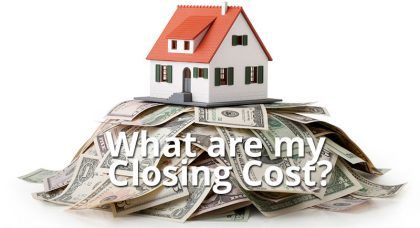Closing Costs to Consider When Buying a Home

To assist you in preparing for Closing Costs, when you purchase a home, I have created this document so that there won’t be any surprises come closing time!
Closing costs can vary greatly depending on what you are purchasing & where.
Please feel free to contact me with any questions you have regarding any of the below items.
$______________
Property Transfer Tax (PTT) All home buyers in BC pay Property Transfer Tax (except First Time Home Buyers under $500,000 or new purchases under $750,000). This is a cash expense, in addition to your down payment. PPT can not be rolled into your mortgage.
- For more details & link to a PTT calculator
- First-time buyers purchasing between $500K-525K? Click this
link for the transition calculations
$______________
GST (currently 5%) on all new home purchases (if applicable)
$______________
Legal Costs & Disbursements
- Legal costs – what your notary or lawyer charges for their services
- Disbursements are costs that are paid out-of-pocket by your notary public or lawyer on your behalf in connection with your real estate transaction. Disbursements usually include the cost of land title and tax searches, land title registration fees, digital execution fees, agent’s fees, courier, postage, copies and other miscellaneous office expenses.
$______________
Interest Adjustment
- This is the interest you will pay for receiving your mortgage money before the official start of your mortgage.
- i.e., if your "completion" were on the 23rd of a 30-day month, and your first mortgage payment is on the 1st of the month, your interest adjustment would be 7 days interest.
$______________
Property Tax Adjustments Most municipal taxes are paid July 1st, for the calendar year BLOG BC Property Tax - What You Need to Know When Buying a Home
- If you purchase a property before July 1st, the seller will be paying you for the days they owned the home after January 1st, and you will pay the city.
- If you purchase a property after July 1st, the seller will have already paid the city and you will pay the seller for the days you own the property up to December 31st.
$______________
Adjustments - you pay for your share of costs, already paid by seller. i.e. if you take possession on July 15 – you will pay your share of electricity, heat, strata, property taxes (above) etc. Typical adjustments include:
- BC Hydro
- Fortis BC
- Strata fee adjustments (if applicable)
$______________
Property value Appraisal (included if you require mortgage default insurance i.e. CMHC) BLOG BC Property Assessment vs Home Appraisal
$______________
Home Inspection / Property Condition Inspection (optional)
$______________
Property survey certificate OR Title Insurance in lieu of survey
- Title Insurance BLOG What is Title Insurance? Why Do You Need It?
$______________
Fire Insurance (if required by the lender)
$______________
Mortgage Penalty Payout (if a refinance)
$______________
Well Water/Septic Certificate (if applicable)
$______________
Moving Expenses, such as movers, Post Office Change of Address and Mail Forwarding service
$______________
Utility Connections (telephone, electricity and gas, cable, internet etc.)
$______________
Lender / Mortgage Broker Fee (if applicable)
$______________
GST (currently 5%) on all new home purchases (if applicable)
Kelly Hudson
Mortgage Broker
604-312-5009
Kelly@KellyHudsonMortgages.com
www.KellyHudsonMortgages.com






